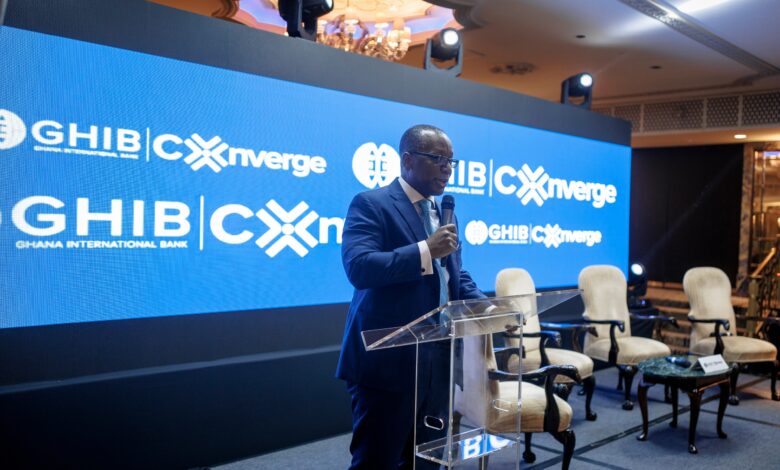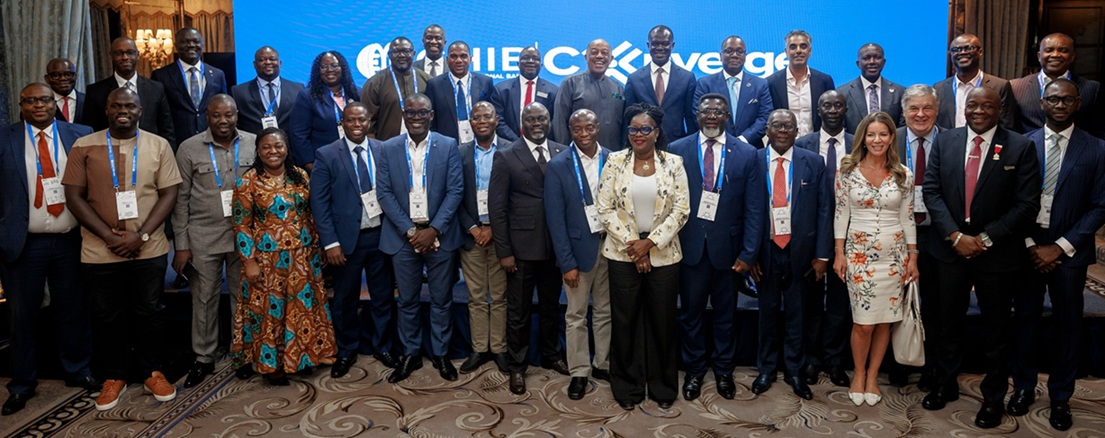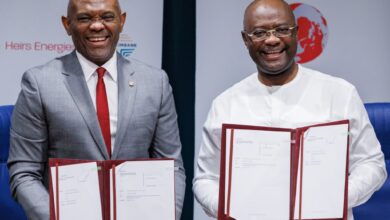GHIB CEO Outlines Financing Strategy to Drive Africa’s Shift to Value-Added Exports

Ghana International Bank (GHIB) has unveiled a bold plan to help Africa move from exporting raw commodities to producing high-value goods that can compete on global markets.
At the GHIB CONVERGE 2025 conference in London, Chief Executive Officer Dean Adansi said the continent’s share of global trade remains under three percent, largely because of an estimated US$80 billion trade finance gap. This funding shortfall prevents exporters from investing in local processing, forcing them to sell raw materials rather than finished products.
“In many African countries, interest rates are far higher than in the West, making it difficult for smaller businesses to secure the capital they need,” Mr. Adansi said. “Without access to affordable finance, we cannot industrialise or add value to our raw materials.”
Billions Lost in Missed Opportunities
Research shows that every US$1 in trade can generate a US$1.70 boost to GDP. Closing the trade finance gap in sub-Saharan Africa could add US$133 billion annually to the region’s economies, creating jobs, increasing local savings, and strengthening capital markets.
At the conference, delegates heard how this gap has cost African producers lucrative contracts. In one case, a US$10 million onion supply deal for Senegal was fulfilled by European suppliers, despite West Africa’s ample production, simply because local producers lacked financing for processing and packaging.
GHIB’s Track Record and New Blueprint
With more than 65 years of experience linking African businesses to global markets, GHIB has facilitated over US$14 billion in trade flows in the past five years alone. This includes US$10.6 billion in trade collections and US$2.7 billion in primary trade finance transactions, with downstream payments to West Africa exceeding US$8.5 billion in 2024.
Building on this record, GHIB’s new commodity financing plan includes:
-
Pre-export financing tied to off-take agreements
-
Inventory financing using stored commodities as collateral
-
Equipment leasing to reduce upfront costs for processing plants
Adansi emphasised that processing facilities require large investments, longer repayment terms, and bespoke risk assessments—needs that standard banking products rarely address.

Beyond Finance: The Need for Infrastructure and Policy Reform
Mr. Adansi stressed that closing the finance gap must be accompanied by reliable electricity, modern transport links, skilled labour, and tax and export policies that support industrialisation.
He highlighted the African Continental Free Trade Area (AfCFTA) as an opportunity to develop regional processing hubs, while digital platforms and blockchain could connect African processors directly with buyers and certify goods for premium pricing.
Environmental finance, he added, could further boost returns. “Sustainably processed goods fetch higher prices. With well-regulated carbon markets, Africa can attract the capital it needs while meeting global sustainability demands,” he said.
Partnerships for Long-Term Impact
GHIB’s strategy depends on working with local banks, development finance institutions, and governments to mobilise resources. Pilot projects in selected commodity sectors will be used to demonstrate the business case for large-scale investment.
For Adansi, the goal is not just profitability but broad-based development. “If we can build value chains that keep more processing on African soil, the benefits will be felt in GDP growth, job creation, and improved livelihoods,” he said.




